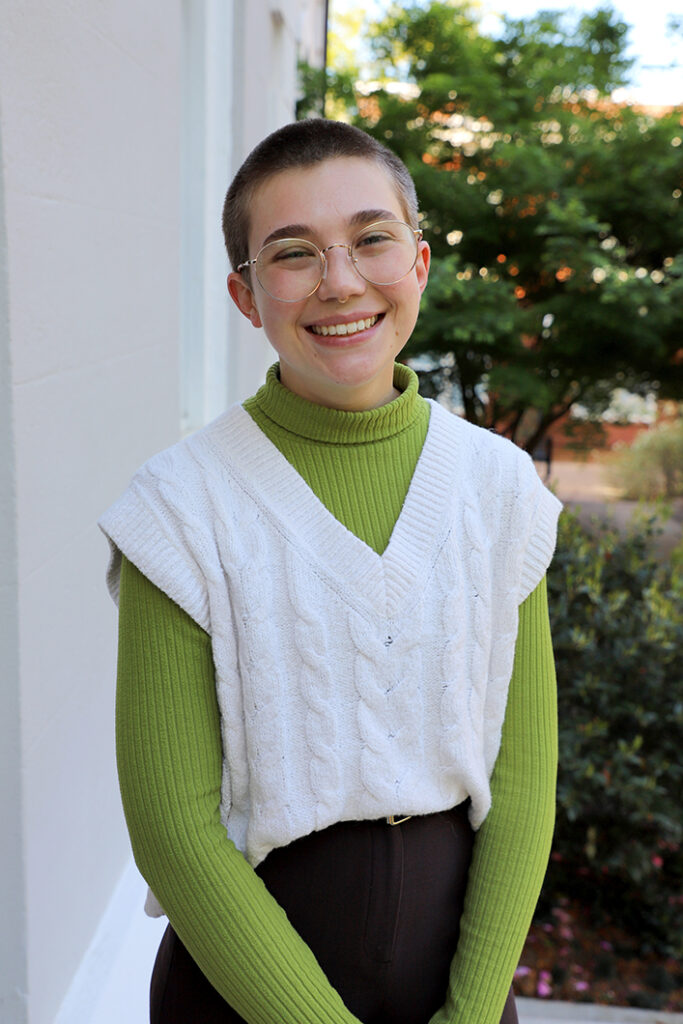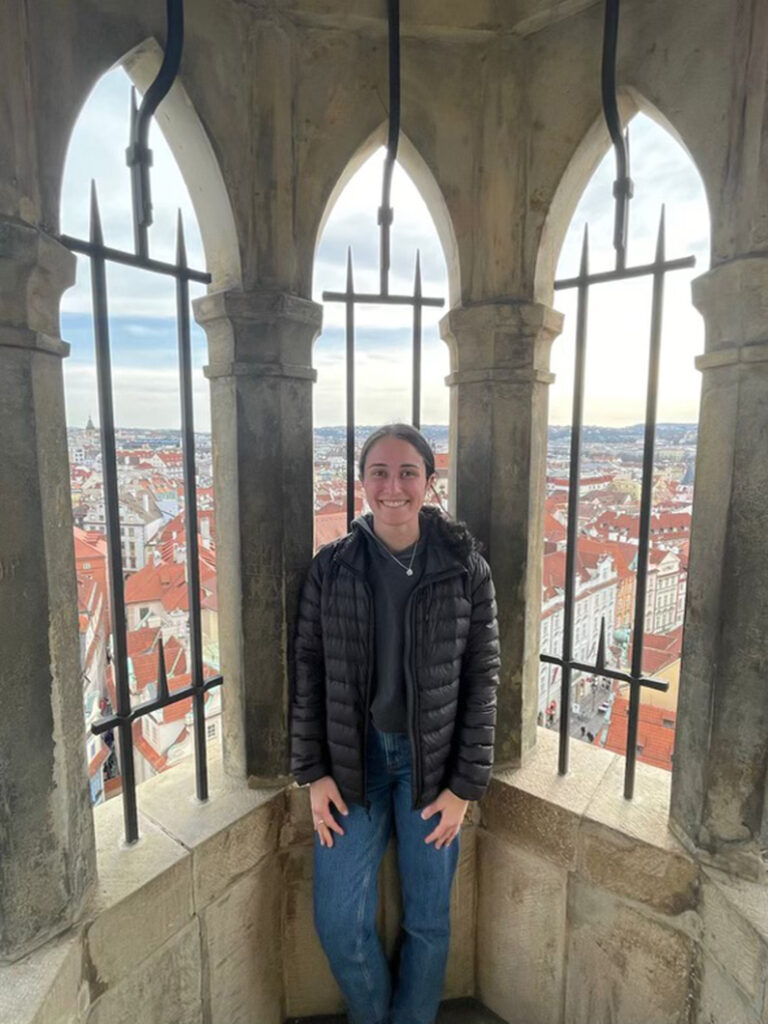University of Georgia juniors Elaine “Lainey” Gammon and Sara Logsdon are among 438 undergraduates across the nation to be recognized as Barry Goldwater Scholars in 2024, earning the highest undergraduate award of its type for the fields of mathematics, engineering and natural sciences.
Gammon is from Reno, Nevada, and is majoring in astrophysics. Logsdon is a Foundation Fellow from Potomac, Maryland, and is majoring in mathematics. Both recipients are students in the Morehead Honors College and the Franklin College of Arts and Sciences, and both have received funding from the UGA Center for Undergraduate Research Opportunities.
Since 1995, 67 students at the University of Georgia have received the Goldwater Scholarship, which recognizes exceptional sophomores and juniors across the United States.
“The University of Georgia is proud of Lainey and Sara for their impressive achievements,” said President Jere W. Morehead. “I am pleased that the significant investments UGA has made, and continues to make, in STEM education are paying dividends for our students and our society.”
This year’s Goldwater winners include 57 scholars who intend to pursue research careers in mathematics and computer science, 237 scholars in the sciences, 80 in medicine and 64 in engineering and materials research. Thirteen scholars are from Georgia institutions.
“Lainey and Sara represent the best of undergraduate research at UGA, and we are thrilled that they have been chosen as Goldwater Scholars,” said Meg Amstutz, dean of the Morehead Honors College. “They have had wonderful mentorship from our faculty and staff, whose support helped make this possible. We are excited to see where their research takes them in the future.”

Lainey Gammon
Lainey Gammon
Gammon plans to pursue a doctorate in astrophysics. Her goal is to study galaxy evolution in the early universe and teach at the university level.
“In the field of astrophysics, where the unknown is vast and discoveries require decades of dedication, I believe instilling a sense of curiosity in younger generations is especially crucial,” she said. “Being part of the new generation of astrophysicists is thrilling as each technological leap propels our understanding of the universe.”
As an undergraduate researcher, Gammon worked with Loris Magnani, professor of astronomy at the University of Georgia, looking at a high-latitude galactic cloud using archival data from the Arecibo Observatory.
She also conducted research with Jed McKinney at the University of Texas at Austin through a National Science Foundation REU, or research experience for undergraduates. Her goal was to determine how many dusty star-forming galaxies in the early universe can be identified with the James Webb Space Telescope and estimate their physical properties. She presented her research on dusty galaxies at three national conferences, and the project is expected to be published in Research Notes of the AAS (American Astronomical Society) in May.
In addition to research, Gammon has tutored math and science for six years, worked as an educator at a science museum, played with the UGA Redcoat Marching Band, provided GED tutoring with Athens Prison Tutorial and organized educational outreach events for the Small Satellite Research Lab at UGA.
This summer, she will study abroad in Indonesia with funding from the Honors International Scholars Program and will conduct research as an intern at the Max Planck Institute for Astronomy in Heidelberg, Germany.

Sara Logsdon
Sara Logsdon
Logsdon plans to earn a doctorate in mathematics and conduct research in abstract algebra and cryptography at a university or government agency.
“I view cryptography as the use of math to make challenging puzzles, in a time when challenging puzzles are needed,” she said. “The average cost of cyberattacks around the world was estimated at $6 trillion last year. It is important that we can communicate securely within transportation, military, government and education systems.”
At UGA, Logsdon has researched a theory of the shapes of topological polymers with Jason Cantarella, professor of mathematics. She worked with the Quinn Research Group, led by Shannon Quinn, associate professor of computer science, to apply machine learning to public health. She also has studied with Jimmy Dillies, lecturer in mathematics, investigating the connections between group theory and conic sections and how the connection gives way to elliptic curve cryptography.
Through internships, Logsdon has worked at the U.S. Department of Energy researching formal methods for critical infrastructure and exploring encryption and worked at the Johns Hopkins University Applied Physics Lab on a U.S. Navy project for enhancing ship communications.
Logsdon has presented her work at national conferences and published her research in four publications. Additionally, she has directed donations and partnerships for The Backpack Project of Athens, played on the UGA women’s club ultimate frisbee team, tutored with Star Tutors and taught through the Pre-College Research Institute.
Logsdon is currently attending the Budapest Semester in Mathematics in Budapest, Hungary.
UGA’s major scholarships office, housed in the Morehead Honors College, provides students across campus with assistance as they apply for national, high-level scholarships. For more information, contact Jessica Hunt at [email protected] or visit https://honors.uga.edu/scholarships/external-scholarships/.
—by Stephanie Schupska, Morehead Honors College
